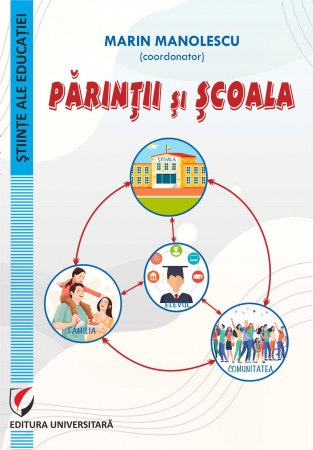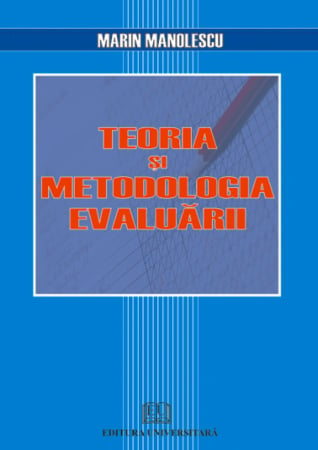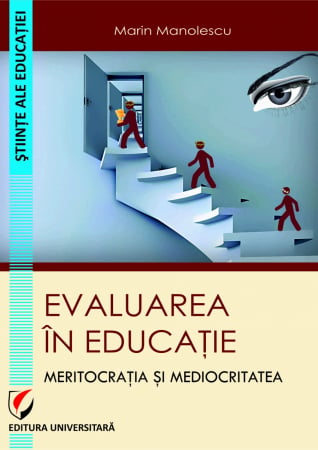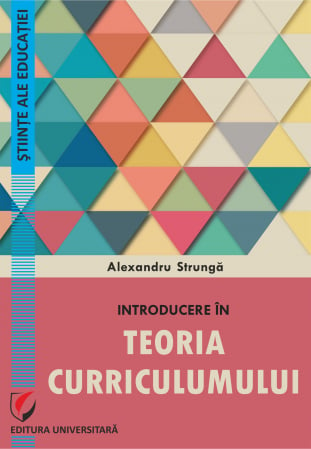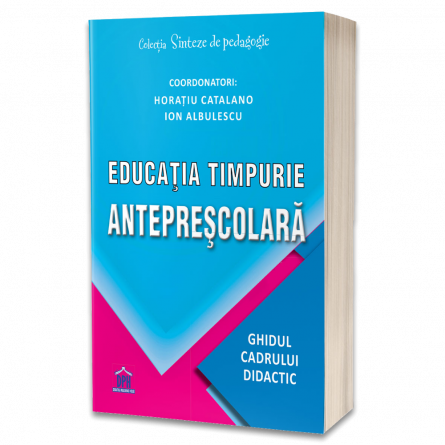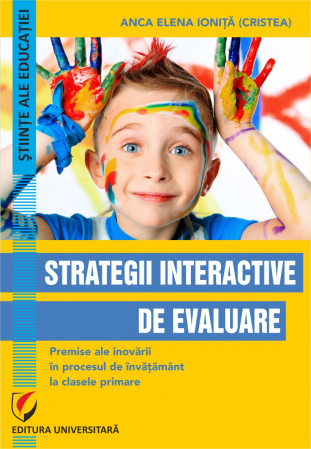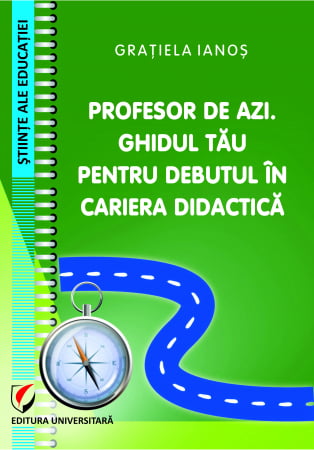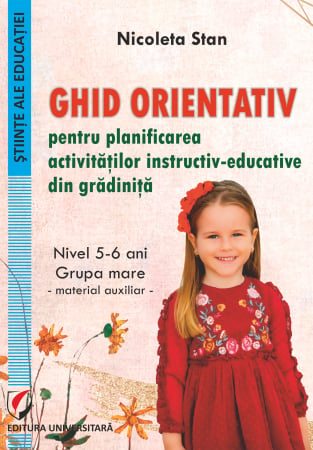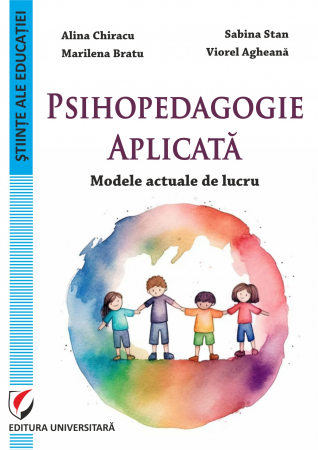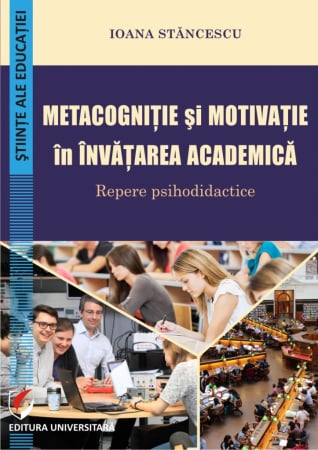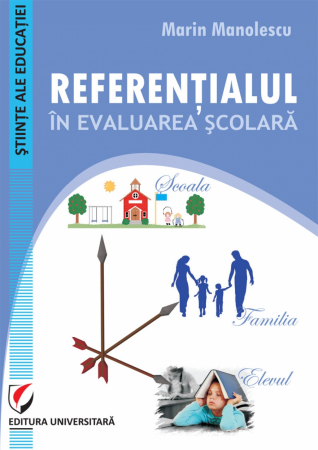ISBN: 978-606-28-1202-7
DOI: https://doi.org/10.5682/9786062812027
Publisher year: 2020
Publisher: Editura Universitară
Author: Oprea-Valentin Busu
Edition: I
Pages: 103
- Description
- Download (1)
- Authors
- Content
- More details
- Reviews (0)
The paper is a plea for the transfer of reflective understanding on psychological results in educational practice at the level of communicative relationship made in academia.
We are glad to find that the formation of didactic communication skills in therapeutic style is useful for the natural development of communication skills and students' relationship skills, with a projection towards increasing learning skills, while developing personal self-esteem and increasing self-esteem. , establishing personal projects with real perspectives to motivate them.
Ensuring a relaxing, disinhibiting, motivating, encouraging didactic climate and avoiding the semantic barriers / blockages occurred in the communication with the group of students will support the teachers' efforts to increase the attractiveness of the university environment.
The author combined elements of intersection in the fields of applied psychology and academia, with whom he came into contact as a PhD assistant at the University of Craiova, Department for Teacher Training, and as an integrative psychotherapist, practicing psychologist, NLP practitioner, development advisor personal, all this being measured by faith in the most important human value, namely, the soul.
-
Inclusion of Therapeutic Aspects in Teacher-Student Academic Communication
Download

OPREA-VALENTIN BUSU
Introduction / 7
Chapter 1. Theoretical approaches of including some aspects of (psycho) therapy in academic teacher-student communication / 10
1.1. Allostatic neuroplasticity and epigenetic mechanisms in personality development / 10
1.1.1. The link between human DNA and emotions / 11
1.1.2. Understanding the type of personality through the prism of acquired social masks / 13
1.1.3. Resolving internal conflicts 18
1.1.4. Techniques for developing students' creativity / 20
1.2. The need for emotional communication in Romanians / 24
1.3. The risk of losing academic communication / 25
1.3.1. Blockages in academic communication / 27
1.3.2. The need for reflective practice and genuine cooperation / 29
1.4. Central ideas of individual and group psychotherapies 31
1.4.1. The role of affective contact of psychological communication / 33
1.4.2. Effective communication. Therapeutic communication / 35
1.5. Verbal structure in psychotherapy / 37
1.5.1. Empathy and resistance to empathy / 42
1.5.2. Respect, non-possessive warmth, authenticity, self-disclosure / 44
1.6. Current research on the use of reflexive conversations / 51
Chapter 2. Research methodology regarding the inclusion of therapeutic aspects in academic communication / 55
2.1. Research objectives / 55
2.1.1. Theoretical objectives / 55
2.1.2. Practical objectives / 59
2.2. Research hypotheses / 59
2.2.1. Type of research and period of development / 60
2.3. Research subjects / participants / 61
2.4. Methods and tools used / 63
2.4.1. Observation / 64
2.4.2. The questionnaire / 64
2.4.3. Interview / 65
2.4.4. Evaluation test / 66
2.4.5. Psychopedagogical experiment / 67
Chapter 3. Research results and their interpretation / 70
Chapter 4. Research conclusions / 85
4.1. Validation / invalidation of research hypotheses / 85
4.2. Recommendations for future research / 88
Bibliography / 91
Annexes / 96
For both teacher and students it is important to achieve a deep learning, as opposed to superficial learning: with self-proposed goals, by understanding the theory-practice links and by reflecting on the meanings, in parallel with understanding others and training reflexivity, through personal development, component very discreet in the Romanian education system.
Following the application of PISA tests (Program for International Student Assessment, in translation "Program for International Student Assessment"), in Romania there was a slight improvement in the quality of the educational act between 2006-2015, but students continued to say that they feel alone and misunderstood. The increase of school performances focused especially on the field of real-mathematics and science. Unfortunately, the humanities in the field of reading did not achieve great results. In 2015, Romania ranked 48th out of 72, being in a continuous progression compared to 2006 and 2009, but not from 2012. The comparison with the results from 2012 shows a decrease in the results from 2015, fact which raises an alarm signal, and as incriminating factors can be the frequent changes in the education system in a short time. Another eloquent example of declining school performance due to education reforms is a country that has long been at the forefront of PISA tests: Finland.
Unfortunately, not only at the pre-university level are poorly revealed by the PISA tests, but we are more and more often in the last period of academic absenteeism and university dropout from students.
Modern trends indicate that teachers are directly involved in creating a context in which to take place: stimulating participation, affirmation itself and employment, accountability, self-control of students; exercising their competencies, by differentiated request, obtaining and maintaining progress, personal development, diversification of academic learning situations, through non-formal and informal activities, counting a lot the way of communication in therapeutic style and authentic contact between teacher and student.
The phenomenon of decreased motivation, lack of purpose in teaching, is present in many Romanian universities. What are the causes? What can we do? How can we intervene as teachers and mediators of the instructive-educational process? We try to establish through this paper, how we can improve the mechanisms of psychological and academic support for students, appealing to good practices in psychotherapy.
Teachers deserve to be aware of the dysfunctions of didactic communication and the borrowing of communication skills in therapeutic style, which will lead more naturally to the development of communication skills and their ability to relate within the student group, to generate increased learning skills; on practicing the style of therapeutic communication in the didactic interest and personal development, to increase students' exposure to new academic subjects, increase self-esteem, reduce apathy, establish personal projects with real perspectives to motivate them.
By promoting empathic and assertive attitudes in communicating academics to familiarize students with the real demands and requirements of university activities, and by ensuring a relaxing, disinhibiting, motivating, encouraging teaching climate and avoiding semantic barriers / blockages in communicating with the student group, it is possible reaches an efficient cooperation between professor-student and increasing the attractiveness of the university environment.
The symptoms of apathy, which affects the orientation towards achieving the goal of graduating from university studies, are manifested in several levels: emotional (absence of emotional activation, intensity of emotional feelings, emotional responsiveness; unchanging emotional feelings), cognitive (diminishing importance or value attributed to different fields associated with purpose, absence of concern for personal problems, absence of interest) and manifest behavior (absence of initiative, effort, perseverance, dependence on other people to structure the activity).
Therefore, in the paper we propose, we plead for cultivating the communication competence of the university staff, for increasing the necessary communication skills, for training and exercising adequate communication skills, in order to streamline teacher-student communication, including in the direction of identifying primary cues. of psychopathological disorders involved in communication, so that, in those situations, to direct the students in risk situations to counselors and approved personnel in order to initiate the professional approaches of therapeutic communication.
The therapist who has the ability to create a kind of development of reflective understanding is a forerunner of psychological outcomes (Angus et al., 2012; Banham & Schweitzer, 2015), an attribute that deserves to be transferred to the teacher.

6359.png)
![Inclusion of Therapeutic Aspects in Teacher-Student Academic Communication [1] Inclusion of Therapeutic Aspects in Teacher-Student Academic Communication [1]](https://gomagcdn.ro/domains/editurauniversitara.ro/files/product/large/busu_aspecte-terapeutice-in-comunicarea-academica-prof-stud_bt-3032-7721.jpg)

